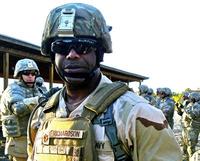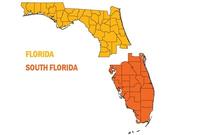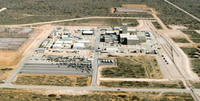-
Vet alleges supervisors at CBP IA ignored his disability: “He Just needed an ounce of compassion” -- Pt. 1

J. Gregory Richardson, a Lieutenant Commander in the Navy (Retired) who injured his back on his last deployments, says that when he served a Senior Security Analyst t Customs and Border Protection Internal Affairs (CBP IA) from 2006 until 2013, supervisors there repeatedly ignored his status as a disabled veteran despite extensive documentation of his medical condition. A fellow CBP IA employee agrees: “he (Richardson) just needed an ounce of compassion” from his supervisors, she said. This veteran never received an ounce of compassion, however, or any other consideration or accommodation. He appears to have been set adrift in the complexities of the federal employment procedures and policies process.
-
-
Building a network of canals to save Boston from sea level rise
By the end of the century, sea-level rise on the U.S. east coast is predicted to reach six feet, so city planners in Boston recently met to discuss how to live with rising waters along the city’s historic streets. One suggestion is to turn Boston’s Back Bay district into a network of canals. The canals would alleviate sea-level rise by draining water into lower-lying back alleys and some main streets, but the proposed plan would have to contend with freezing temperatures in the winter.
-
-
South Florida wants to secede from Florida over sea level rise

When people talk of “secession” in the United States they typically have Texas, Vermont, or the former Confederate states in mind, and the reasons for driving secession typically have to do with politics or money. Not anymore. The city of South Miami earlier this month passed a resolution which called for southern Florida to secede from the rest of the state, citing climate change as the reason. There are many differences between north and south Florida: South Florida is largely urban and politically tends to lean left, while the north is mostly rural and much more conservative. If south Florida reminds people of New York, the Florida panhandle resembles Alabama. Then there is this: The northern part of the state is, on average, 120 feet above sea level, but much of the southern section averages only fifteen feet above sea level. South Floridian say that the state government in Tallahassee ignores the perils of sea level rise, which are particularly acute in south Florida, so the time has come to separate from the aloof north.
-
-
First New York Ebola case confirmed
Dr. Craig Spencer, who had been working with Doctors without Borders in Guinea and treating Ebola patients before returning to New York City on 14 October, was taken to Bellevue Hospital yesterday (Thursday) and placed in strict isolation. Tests later determined that he had contracted the Ebola virus. Spencer is the first New Yorker diagnosed with Ebola. As if in anticipation of a case like Dr. Spencer’s, more than 5,000 healthcare workers in New York participated in a three-hour session earlier this week to prepare for Ebola should an infected person arrive in the New York City region.
-
-
China steals confidential data on the vulnerabilities of major U.S. dams

The U.S. Army Corps of Engineers’ National Inventory of Dams(NID) contains critical information on the vulnerabilities of the roughly 8,100 major dams in the United States. Between January and April 2013, U.S. intelligence agencies spotted several attempts by China’s People’s Liberation Army (PLA) cyber-espionage unit to access the NID database and steal its contents. On Monday, National Weather Service (NWS) hydrologist Xiafen “Sherry” Chen, 59 was arrested for allegedly breaching the NID security and stealing confidential data on U.S. dam vulnerabilities. The Justice Department has raised the alarm over multiple attempts by China to steal data on U.S. critical infrastructure through individuals with privileged access to confidential databases.
-
-
Law enforcement: Apple iOS 8 software would hinder efforts to keep public safety

With its new iOS 8 operating software, Apple is making it more difficult for law enforcement to engage in surveillance of users of iOS8 smartphones. Apple has announced that photos, e-mail, contacts, and other personal information will now be encrypted, using the user’s very own passwords — meaning that Apple will no longer be able to respond to government warrants for the extraction of data.
-
-
U.S. planning expansion of nuclear production in the face of safety concerns

Despite the release of a damning report regarding the 14 February nuclear waste accident at the Waste Isolation Pilot Plant (WIPP) near Carlsbad, New Mexico by the U.S. Department of Energy (DOE), the government is planning ramped-up production of nuclear weapons cores, a move which is raising red flags for those calling for reform of nuclear production and storage procedures.
-
-
Canada reflective, tense in wake of attack on parliament building
Canadians are still in shock today — the Globe and Mail’s healdine reads: “Attack on Ottawa: Brazen assault could be turning point for Canada” — at the realization that their country is not more immune to terrorist attacks than their neighbor to the south or fellow democracies across the Atlantic. There were acts of terrorism in Canada in the past — mostly committed by Quebec separatists in the late 1960 and early 1970s — but yesterday’s attacks had a different feel to them. “A gunman struck at the heart of the Canadian government…. in what was one of the most brazen attacks on a Western government in recent history,” the Globe and Mail wrote.
-
-
Canada considering expanding powers of its security agencies
The Harper government is considering legislation which would expand the powers of the Canadian Security Intelligence Service (CSIS) to investigate, apprehend, and detain homegrown terrorists. CSIS wants the power to take advantage of the so-called “Five Eyes” spy network to which Canada, the United Kingdom, America, Australia, and New Zealand all belong. CSIS is also asking for more power to track Canadians believed to have been radicalized, and to take more advantage of anonymous sources. Ottawa officials are talking about whether to give CSIS explicit legislative permission to engage in “threat-diminishment” — a power which the intelligence agency’s watchdog recently pointed out that CSIS already uses, but the law does not explicitly permit.
-
-
Israel army in late August saved Irish troops from al-Nusra Jihadists on Golan Heights
Israel Defense Force (IDF) units on 30 August helped rescue Irish soldiers serving with the United Nations Disengagement Observer Force (UNDOF) on the Golan Heights. The rescue required the IDF to direct heavy fire at the Syrian Jihadists to prevent them from approaching the Irish contingent. The IDF, using its observation posts and aerial intelligence, guided the Irish soldiers so they could avoid concentrations of the heavily armed al-Nusra forces.
-
-
Sea level rise or not, coastal development in south Florida is booming
Miami and Miami Beach are both considered ground zero for the challenges posed by climate change, as both cities will experience considerable sea level rise by mid-century. Constant flooding will become the norm as high tides reach shores, posing a threat to property and human life. As discouraging as the future may seem for South Florida, residents, real estate investors, and companies are increasing their investments in the area.
-
-
Congress ready to allocate additional funds to agencies working on Ebola
Some members of Congress are preparing to offer additional funding to the Centers for Disease Control and Prevention, the National Institutes of Health, and other federal agencies, but according to White House press secretary Josh Earnest, the Obama administration has not decided how much additional funding it will request from Congress to combat the epidemic.
-
-
Five Britons go to Iraq, Syria every week to join ISIS: U.K. police chief
The Metropolitan police commissioner, Sir Bernard Hogan-Howe, the most senior U.K. police officer, has revealed that five Britons are travelling to Iraq and Syria to join Islamic State (ISIS) every week. Hogan-Howe spoke after it was reported that a third Jihadi from Portsmouth has been killed in the conflict. Hogan-Howe said that the figure of five Britons a week joining ISIS was a minimum and the “drumbeat of terrorism in the U.K.” was now “faster and more intense.” He added: “Those are the ones that we believe have gone. There may be many more who set out to travel to another country and meandered over to Syria and Iraq in a way that is not always possible to spot when you have failed states and leaky borders,” Hogan-Howe said.
-
-
Islamic State lacks key ingredient to make ‘caliphate’ work: eunuchs
Abu Bakr al-Baghdadi proclaimed Islamic State (ISIS) as a Muslim caliphate on 29 June 2014, with himself as caliph. Each of the earlier caliphates, however, had two features that ISIS lacks. First, ISIS has yet to establish a proper capital: A true state needs a central place to which taxes are paid and from which laws, regulations, and other administrative functions descend. Second, all previous caliphates relied on a special class of bureaucrats to provide stability and statesmanship. Those were eunuchs, who were unable to impregnate the women sequestered in the palace. As long as ISIS persists in beheading rather than castrating the males it captures, it has little hope of resurrecting a historic caliphate. Granted, ISIS is already acquiring women, but it has no-one to guard them for the caliph and no infertile functionaries to enact the authority of the state. While it has been less than a century since the fall of the Ottoman Empire, it is clear that a key concept for continuity with the great caliphates of the past has been lost. Simply stated, if ISIS doesn’t build a deeply fortified city and start producing eunuch bureaucrats, it will never have the stability and endurance of historic caliphates. The best it can hope for is to be recognized as a twenty-first-century predatory horde. If ISIS continues along its current path, it is likely to be remembered like the Vandals — that is, as murderous marauders who get brief mention in high school history classes.
-
-
Abrupt shift: Turkey allows Kurdish peshmerga to cross Turkish territory to help in Kobani’s defense

Bowing to intensifying U.S. pressure and growing domestic anger, the Turkish government, in an abrupt shift, announced yesterday (Monday) that it would allow Kurdish peshmerga forces from northern Iraq to cross Turkish territory on their way to defend Kurds in the besieged Syrian Kurdish border town of Kobani. In another development, the United States has decided to ignore objections by the new Iraqi government to the United States directly providing military aid to the Kurds, and yesterday air-dropped twenty-four tons of weapons and ammunition for the Kurdish defenders of the town in the first supply run the United States had made to the besieged town in nearly five weeks of fighting. Military analysts said the two moves could tip the military balance in favor of the defenders of the Kurdish town in their month-long battle against Islamic State (ISIS) fighters.
-
More headlines
The long view
Factories First: Winning the Drone War Before It Starts
Wars are won by factories before they are won on the battlefield,Martin C. Feldmann writes, noting that the United States lacks the manufacturing depth for the coming drone age. Rectifying this situation “will take far more than procurement tweaks,” Feldmann writes. “It demands a national-level, wartime-scale industrial mobilization.”
No Nation Is an Island: The Dangers of Modern U.S. Isolationism
The resurgence of isolationist sentiment in American politics is understandable but misguided. While the desire to refocus on domestic renewal is justified, retreating from the world will not bring the security, prosperity, or sovereignty that its proponents promise. On the contrary, it invites instability, diminishes U.S. influence, and erodes the democratic order the U.S. helped forge.
Fragmented by Design: USAID’s Dismantling and the Future of American Foreign Aid
The Trump administration launched an aggressive restructuring of U.S. foreign aid, effectively dismantling the United States Agency for International Development (USAID). The humanitarian and geopolitical fallout of the demise of USAID includes shuttered clinics, destroyed food aid, and China’s growing influence in the global south. This new era of American soft power will determine how, and whether, the U.S. continues to lead in global development.
Water Wars: A Historic Agreement Between Mexico and US Is Ramping Up Border Tension
As climate change drives rising temperatures and changes in rainfall, Mexico and the US are in the middle of a conflict over water, putting an additional strain on their relationship. Partly due to constant droughts, Mexico has struggled to maintain its water deliveries for much of the last 25 years, deliveries to which it is obligated by a 1944 water-sharing agreement between the two countries.
How Disastrous Was the Trump-Putin Meeting?
In Alaska, Trump got played by Putin. Therefore, Steven Pifer writes, the European leaders and Zelensky have to “diplomatically offer suggestions to walk Trump back from a position that he does not appear to understand would be bad for Ukraine, bad for Europe, and bad for American interests. And they have to do so without setting off an explosion that could disrupt U.S.-Ukrainian and U.S.-European relations—all to the delight of Putin and the Kremlin.”
How Male Grievance Fuels Radicalization and Extremist Violence
Social extremism is evolving in reach and form. While traditional racial supremacy ideologies remain, contemporary movements are now often fueled by something more personal and emotionally resonant: male grievance.
